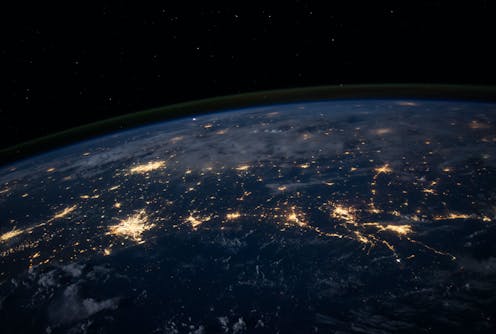What will power the future: Elon Musk's battery packs or Twiggy Forrest's green hydrogen? Truth is, we'll need both
- Written by John Mathews, Professor Emeritus, Macquarie Business School, Macquarie University

The battle of the billionaires has become the stuff of headlines. The world’s richest man, Elon Musk, has gone head-to-head with Australia’s richest man, billionaire Andrew “Twiggy” Forrest.
Musk, founding investor in battery-powered car giant Tesla, has famously mocked hydrogen fuel-cell vehicles as “mind-bogglingly stupid”. Forrest has just placed a very large bet on green hydrogen through his Fortescue Future Industries company. It’s no surprise Forrest has hit back, calling Musk “just a businessman” rather than a “real climate avenger”.
The stoush might sound tabloid. But at its heart is serious debate about the world’s industrial future. Battery-electric cars have already proven their worth, whereas hydrogen fuel-cell cars are still emerging. But green hydrogen isn’t a one-trick pony – it can replace fossil fuels in many high-emissions industrial processes, such as making steel or cement.
As we accelerate towards a green future, will batteries or fuel cells power the world? The short answer is, we’ll need both.
The battle for the future?
Musk and his company Tesla are backing batteries and battery-powered electric vehicles. And Musk is doing this at colossal scale, with his large-scale gigafactories churning out millions of lithium-ion battery packs to power battery-electric vehicles. Other corporations such as LG and Samsung are following suit, rolling out their own gigafactories.
By contrast, Forrest is heavily backing green hydrogen. To make it a reality, he envisages vast solar arrays across Australia’s sun-drenched north and west to power the electrolysis process which splits water into its components, hydrogen and oxygen. In a fuel cell car, green hydrogen once again combines with oxygen and produces electricity.
While Teslas and many other battery-electric cars are now seen on roads around the world, fuel cell cars have had limited appeal to date. While Japan’s Toyota and South Korea’s Hyundai have backed them, they’re a rarity in other nations. This, Forrest believes, can change as green hydrogen arrives in large volumes and costs fall.
Musk does have a point. What, he asks, is the point of producing clean energy to produce hydrogen to produce electricity to propel a car? Why not just store the green electricity in a battery and use it directly?
While this truth might limit the uptake of fuel-cell vehicles in the medium term, Forrest sees green hydrogen as a miracle commodity and a long-term prospect. Speaking last year, Forrest said green hydrogen could become the biggest industry in the world, boasting revenues of AU$18.5 trillion by 2050.
How? Green hydrogen is versatile. Unlike batteries, green hydrogen can replace oil, coal and gas in virtually all their uses – including as fuel in fuel cell electric vehicles. Green hydrogen can produce green steel, green cement, green glass, green plastics and even green fertiliser (through green ammonia).
This is the real reason green hydrogen matters. It makes total fossil fuel substitution possible, as I argue in my forthcoming book.
Read more: Australia plans to be a big green hydrogen exporter to Asian markets – but they don’t need it
How far off is total substitution?
Forrest and his green hydrogen company are focused on green hydrogen as a universal substitute, rather than just fuel for vehicles.
This changes how we should view the hydrogen-battery debate. While battery-electric technology has taken a commanding lead in consumer cars, batteries are much less effective in powering heavy transport such as trucks. That’s because you would need immensely heavy batteries to get enough range and power. By contrast, the ability to store large volumes of hydrogen means fuel cells may well be needed to power trucks, trains, boats and ships.
Giant industrial economies to Australia’s north like such as South Korea, Japan and China are increasingly seeing green hydrogen as a way to decarbonise. The technique should also produce major water savings, given the water used in electrolysis is a fraction of that needed to make fossil fuel use viable through mining, cooling power stations and fracking for gas or oil.
While these nations will be able to produce some of their own green hydrogen using water, solar and wind, they are also likely to look for overseas suppliers such as Australia, given our vast solar and wind resources.
But there are cost and scale challenges to overcome, notably the cost of electrolysers. Recent research suggests this bottleneck is significant, but could be overcome with government and industry backing.
Costs should drop rapidly in the next few years. By the end of this year, the world will have its first gigawatt of electrolysis capacity. By 2030, according to a new International Energy Agency report, it could be between 134 and 200 gigawatts of capacity if all planned projects proceed. As of 2021, 38 gigawatts of capacity were planned in Australia. Some of these won’t proceed, of course. But many will.
Green hydrogen is not a direct competitor with light battery-electric cars. It’s complementary – and it will open up many new urgently needed pathways to net zero in hard-to-decarbonise sectors. So Musk is wrong about hydrogen. But he’s right about batteries – we’ll need them too.
For our part, Australia has everything to gain from accelerating the green hydrogen industrial future. It’s entirely feasible we could have a vast export industry to take up the slack as coal, oil and gas decline. And we’ll benefit from our rich deposits of minerals needed in batteries, too.
Authors: John Mathews, Professor Emeritus, Macquarie Business School, Macquarie University





